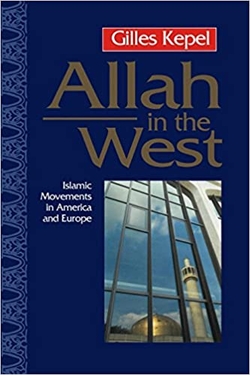 Kepel, director of research at the prestigious CNRS in Paris and darling of the French media, looks here at the development of Islam in the United States, Great Britain, and France. In each country, he finds that Islam flourishes in the context of a perceived "denial of citizenship" that leads the disadvantaged to press their social and political claims via a religious format. Thus is Islam "at the heart" of the Black American effort to find a place in the wider society, and it has roughly the same function for immigrants in Britain and France.
Kepel, director of research at the prestigious CNRS in Paris and darling of the French media, looks here at the development of Islam in the United States, Great Britain, and France. In each country, he finds that Islam flourishes in the context of a perceived "denial of citizenship" that leads the disadvantaged to press their social and political claims via a religious format. Thus is Islam "at the heart" of the Black American effort to find a place in the wider society, and it has roughly the same function for immigrants in Britain and France.
Although an accomplished researcher, Kepel's singular theory leads him to some strange ideas that get in the way of understanding the phenomenon he seeks to elucidate. In his analysis of the United States, for instance, his insistence on seeing Islam as a Black phenomenon causes him (1) completely to ignore the more numerous Muslim immigrants and (2) to transform the Nation of Islam into a far more significant movement than actually is the case. (He considers it "a major contribution to the worldwide expansion of Islam at the end of the twentieth century" as well as "a symptom of the disintegration of the US social system.")
Worse, Kepel makes preposterous mistakes, both factual (Qadhdhafi loaned Louis Farrakhan $5 billion in the 1970s) and conceptual (NOI's anti-Jewish outbursts stem from "a process of community-building" rather than from anti-Semitism).